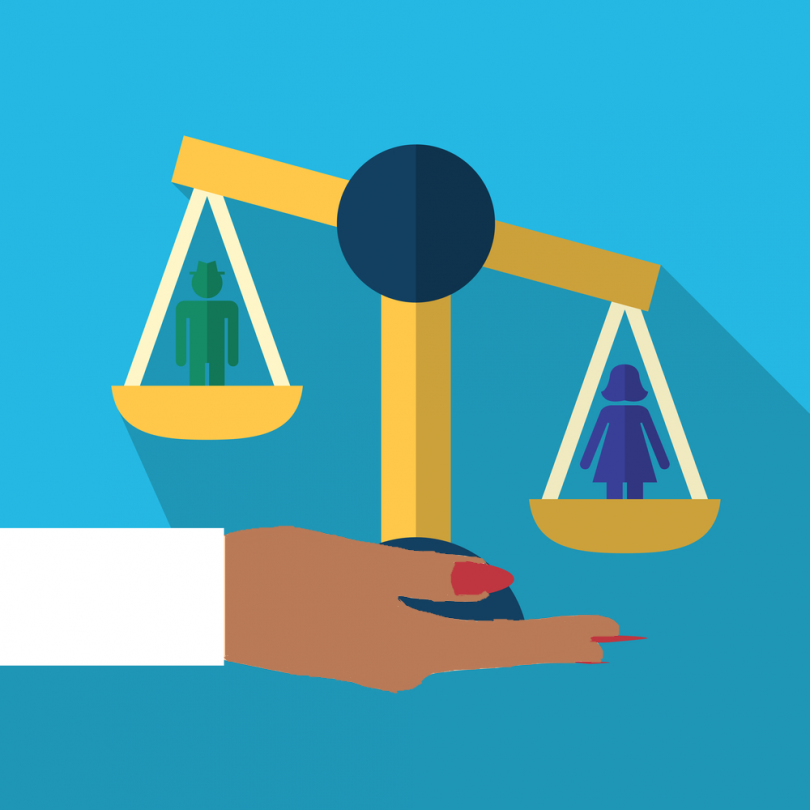By: Sarah Duval
Typically when I analyze the issue of gender inequality my thoughts are limited to what I have experienced as a woman living in the Western world. Although I am of Haitian descent, my knowledge about the oppressiveness of a patriarchal society doesn’t venture far past the shores of North America. I have never asked my Mother or Grandmother what their experience was living as women in Haiti; a country far less liberal and just than the United States is when it comes to the treatment of women.
Being a first generation American meant my parents still raised me with some of the gender roles and double standards that exist in Haitian society, but what I have had to deal with is not even a fraction of what Haitian women and other Caribbean women experience in their home countries.
The issue of gender inequality in the Caribbean became relevant to me after reading an article about a sexist comment made by Haitian president Michel Martelly. Earlier this year at a campaign rally, a woman asked President Martelly what he planned on doing about the lack of electricity in her region. Instead of answering her question appropriately, he responded by telling her to go find a man to have sex with.
President Martelly is known for being filterless and looselipped; however, that doesn’t change the fact that his comment was totally unacceptable. The comment he made is reflective of a widespread sexist mindset in the Caribbean. Unlike women in the western world, it has taken much longer for Caribbean women to combat this sexist culture and ascend from their status as second class citizens.
Gender inequality in the Caribbean oftentimes stems from people’s manipulation of religious texts, calling for women to be submissive and men to be dominant. Men feel compelled to control their wives and daughters, ruling their households with an iron fist. The result of this is that a great deal of women in the Caribbean end up in low sectors of society in terms of employment, wages, and political representation.
Statistics report that women in the Caribbean face job discrimination that limits them from being promoted in the workforce. This discrimination is able to persist because social and legal institutions do not pledge to stand behind and advocate for their equality in all aspects of life such as employment and earning, as well as social and political participation.
Poor economic conditions have put a massive strain on family life, leading to an increase in domestic violence Caribbean women face. Economic collapse and crisis are often correlated to a rise in domestic abuse. Sexual violence against women is also pervasive in the Caribbean.
Three Caribbean countries are among the top 10 for reported incidence of rape, and all Caribbean countries have higher than the world average for rape. There are laws in the region against domestic violence; however, fewer than half of Caribbean countries have laws that protect women when it comes to marital rape and sexual assault. It is also extremely difficult to document cases of abuse because women often remain silent out of fear.
There is a group of women in the Caribbean, who find difficulty living their truth because their unique identity puts them in danger. Women who identify as lesbian, bisexual or transgender are in a constant state of fear and peril. Despite the presence of intolerance towards them, there is still an abundance of queer women. However, the immense discrimination they face causes them to hide their identities. There are social and criminal ramifications for being queer in the Caribbean.
To be a transgender, lesbian, or bisexual woman in the Caribbean means to not only face public shame but to also face violent brutality. Far too many queer women have been assaulted, ostracized, and forced into pretending that they are cisgender or heterosexual. Queer women living in the Caribbean have to endure the oppression that comes with the intersection of their identities.
There is an urgent need for both social and systemic change in Caribbean countries. The United Nations in collaboration with the governments of many Caribbean countries are actively trying to bring about change. The United Nation’s Convention on the Elimination of Discrimination Against Women has been working with Caribbean countries to achieve gender equality in the labor force. Partnership for Peace, UN Trust Fund to End Violence Against Women, and other organizations are all working to end violence against women in the region.
These initiatives have been effective, however, there is more that needs to be done. There have been crusaders and small organizations trying to better the lives of queer women, but little to no governmental efforts have been made. The intrinsic worth of women as capable, selfdetermining individuals needs to be promoted in Caribbean society. Once this is recognized, Caribbean women can experience liberation and freedom from gender inequality.








[…] My article about gender inequality in the caribbean was published on My Black Matters one of favorite blogs!! […]
[…] Source gambar : https://myblackmatters.com/gender-inequality-in-the-caribbean/ […]
Well, you talk about some true facts which we normally ignore and people start getting benefits from it. I take some notes from assignment help melbourne about this topic and they also agree with you as well.